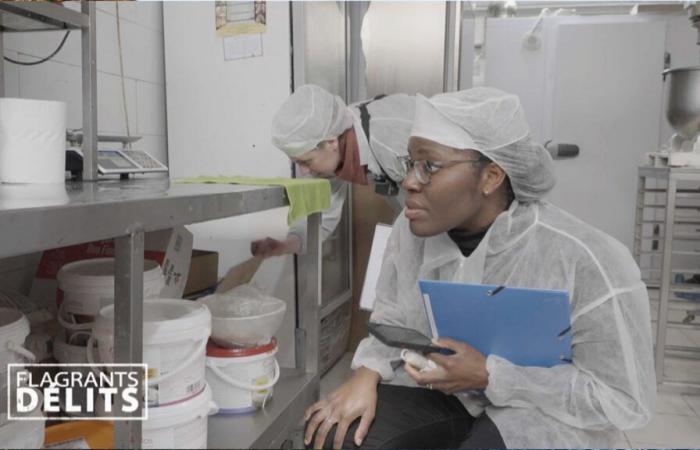The second season of “Flagrants Délits”“ on RTL TVI highlights the unsung heroes of food and environmental safety. Among them, the AFSCA (Federal Agency for the Safety of the Food Chain) plays a central role in guaranteeing the quality of consumed products and public health. Aline Van den Broeck, spokesperson for the agency, reveals to us the underside of these rigorous controls and the importance of their mission.
In 2023, the FASFC carried out more than 106,757 control missions, with a compliance rate of 84.8% in all sectors. Aline Van den Broeck, spokesperson for the agency, explains the functioning, challenges and objectives of the FASFC to guarantee food safety in Belgium.
RTL info: What are the main missions of the AFSCA?
Aline Van den Broeck : We are responsible for the safety of the food chain, from producer to consumer. This includes inspections, sampling and analysis at every stage, from raw material to prepared supermarket meals. We also have expertise in animal and plant health.
How does an inspection take place?
In the distribution sector, which is in direct contact with the consumer, we carry out regular checks. For a restaurant, for example, the minimum frequency is one inspection every four years. The inspector uses a checklist covering various points: infrastructure, facilities, hygiene, and food management, such as the cold chain and the cleanliness of refrigerators. Each point is weighted to establish an objective final assessment.
What initiatives is the FASFC carrying out to adapt to new challenges such as the increase in imported products or consumer trends?
We operate with a regularly reassessed control plan. This plan determines which companies are inspected and how often, based on their type of activity and the associated risk. The higher the risk, the more frequent the checks. We continually adapt this plan based on the results obtained for the different categories of activities and foodstuffs.
What are the main challenges that the FASFC is currently facing in terms of food safety?
We place a lot of emphasis on “food safety culture”, which consists of everyone in the food chain being aware of their role in maintaining a high level of safety. Although Belgium already has an excellent level of food safety, this culture must be shared by everyone, from the factory manager to the worker.
What measures are taken when an infraction is noted during an inspection?
Each non-compliant point is noted in a checklist and weighted from 1 to 10. Depending on the severity, this may result in a warning or an administrative fine. The amount of the fine is determined by our legal department after examining the file.
How does the FASFC deal with criticism regarding the severity or frequency of controls?
We receive less and less criticism thanks to our transparency. We provide extensive information on our site and offer operator training on inspection frequencies and what will be monitored. We also carry out training and distribute and make available brochures which allow operators to also prepare for an FASFC inspection. In addition, we also receive more than 5,000 consumer complaints per year, and half of them are founded, which proves our importance.
What communication channels do you use to inform the general public of product recalls and health alerts?
We post reminders on our social media and website. It is also possible to subscribe to our newsletter to receive these notifications. In addition, we go through the Belga agency, which allows wide distribution in the media.
Do you work with other European or international institutions to harmonize food safety standards?
Around 90% of the standards we apply are European standards, there are very few specifically Belgian standards. We collaborate with bodies such as EFSA (Editor’s note: European Food Safety Agency) and use a European alert system for product recalls, ensuring rapid and effective cooperation between countries.
What are the issues that come up regularly?
Recently, we have talked a lot about animal diseases, such as blue tongue disease which affected cattle farms this summer. We also discussed African swine fever, which remains a threat. Furthermore, during an action in June, we noted that 50% of the food labels checked did not comply with European legislation.
What are the objectives set for the coming years in terms of food safety and quality?
Maintaining a high level of food safety remains our priority. However, the primary responsibility lies with professionals. “Food safety culture” must be anchored in each link of the chain to guarantee optimal safety.
Don’t miss the discovery of these behind the scenes in “Flagrants Délits – season 2”, which dives into the heart of the hard work of the AFSCA and other agents working to protect our daily lives, every Thursday from November 14 at 7:50 p.m. on RTL tvi and streaming on RTL play.
afsca health food animals








